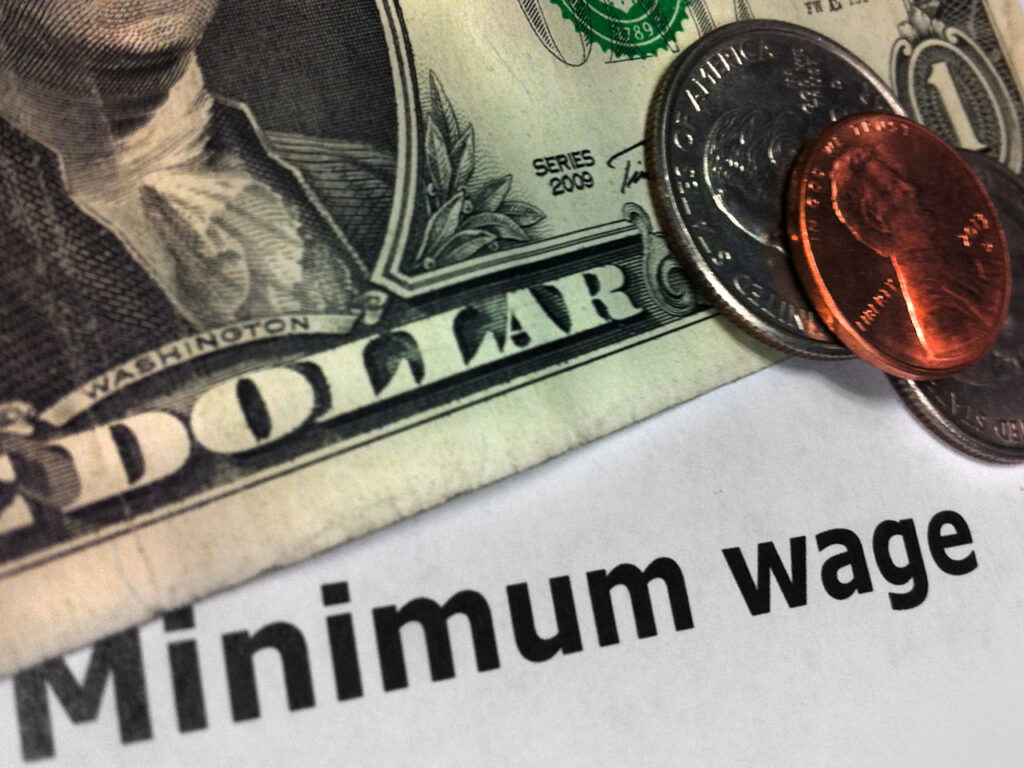Want to see more people with jobs? End the minimum wage.
The problem isn’t merely that minimum wages reduce demand for workers, especially those who have little or no workplace experience or poor educations. The minimum wage is immoral. It is immoral because it is an affront to freedom.
My life is mine. Yours is yours. People should be free to work at whatever job they like for whatever amount they’ll accept. With government setting the parameters, our life is no longer ours; it is the government’s.
Consider: The federal minimum wage is $7.25 an hour, and many states and locales have set higher minimums. Suppose you’re eager to earn some money but no one will hire you at the federally mandated $7.25 an hour. You offer to work for $6 an hour, and an employer agrees to hire you. You’re happy, and the employer is happy, but the minimum wage enforcers are furious.
So you and the employer agree on $6.50. Still no good. You agree on $7.20. Still no good. The minimum wage enforcers will keep you unemployed over a nickel. You agree to $7.24. Still no good. The government enforcers will keep you unemployed over a penny. And they’d have us believe this is for your benefit.
Some advocates of raising the minimum wage claim higher wages do not reduce job opportunities. To these advocates, I make this offer:
I promise to hand-wash and wax one car for any reader of this column who will pay me $10 million to do it. I make this promise secure in the belief that my minimum wage of $10 million means I will never have to do it. If some multibillionaire decides it is worth paying me $10 million, then I would decide it’s worth my time and effort to do the job.
I would never promise to wash and wax readers’ cars for $10, because with that low a minimum wage for the job, I might be flooded with demands to do it, and I don’t want to wash and wax cars for $10.
The same principle applies to all jobs. The more we have to pay people, the less likely we are to hire them. And the reverse is true: The less we have to pay, the more likely we are to hire. When I was young, “gas jockeys” pumped gas, put air in tires, offered to check oil, and washed windows. Minimum wage laws and other hiring costs—workers compensation insurance, unemployment insurance, payroll taxes, etc.—have priced gas jockeys out of work. The same thing has happened with many other jobs, such as movie theater ushers and elevator operators, who too have virtually vanished.
Some of the most vocal advocates of a higher minimum wage routinely hire people to work for … nothing. I can’t think of a wage lower than zero, can you? Yet the White House, Congress, and legislatures around the country are crawling with unpaid interns. These unpaid interns have taken these zero-wage jobs because they think they’ll look good on a resume, get their foot in certain doors, teach them skills to later get paying jobs, etc.
The interns have chosen to spend part of their lives working for no pay, and President Barack Obama and other advocates of a higher minimum wage have done the hiring. If only they’d let all employers and job-seekers decide for themselves the terms and conditions of employment, there’d be a lot more of it.
Steve Stanek ([email protected]) is a research fellow at The Heartland Institute.





